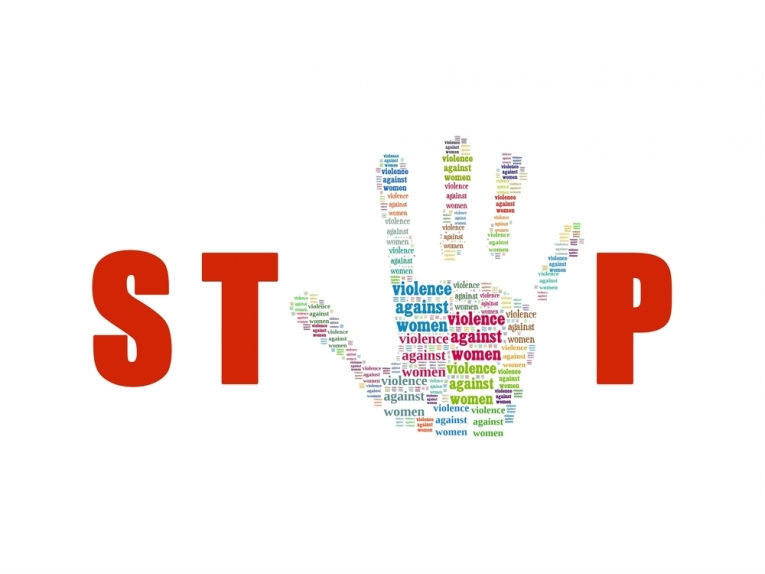On 17th December 1999, by Resolution 54/134, the United Nations General Assembly designated 25th November as the International Day for the Elimination of Violence against Women
This date was chosen in recognition of the brutal assassination if the three Mirabal sisters, Patria, Minerva and Maria from the Dominican Republic who took a stand against the Dominican Dictator, Rafael Trujillo.
Trujillo was President of the country from 1930 to 1938 and again from 1942 to 1952, at which point he became its dictator.
The sisters came from a prosperous Dominican family and they were all well educated, at a time when this was not always the case. Initially only Minerva was involved in the political movement against Trujillo, but later her two sisters and most of her family also became active.
The anti-Trujillo movement was growing and by the late 1950s all three sisters were involved in the underground movement to overthrow Trujillo. They were repeatedly arrested and so were their husbands and for a long period they were in and out of prison.
They became almost like folk heroes and Trujillo arranged for them to be assassinated. On 25thNovember 1960, they were ambushed and clubbed to death.
In 1981 women's activists began to recognise the day as being pivotal in the fight against violence to women and as the women's movement grew, 25thNovember came to be regarded as a special day, ultimately leading to the adoption of the UN Resolution in 1999.
The Resolution defines the term "violence against women" as:
Any act of gender-based violence that results in, or is likely to result in, physical, sexual or psychological harm or suffering to women, including threats of such acts, coercion or arbitrary deprivation of liberty, whether occurring in public or private life.
The International Day for the Elimination of Violence against Women has also become known around the world as White Ribbon Day, which is certainly less than a mouthful. To mark the event, men and boys are urged to wear white ribbons as a visible pledge never to commit, condone or remain silent about violence against women.
Internationally the co-ordination of events is in the hands of the United Nations Development Fund for Women (UNIFEM), but there are many hundreds of locally arranged events, all designed to raise awareness of the problem.
In the UK, for instance, this will include a number of "Wear Her Heels Walks" where men and boys walk a mile wearing high heel shoes. In another event a massive banner is being produced of handprints. This will carry the message: "These hands are not for hurting". Different organisations will produce sections of the banner and these will then be sewn together to show solidarity against domestic abuse and sexual violence.
Sexual violence is commonly used as a weapon of war and it has been estimated that during the Rwandan genocide, up to 500,000 women were raped. A thorny problem, certainly in the UK, is that of refugees. Many arrive in the country fleeing from violence, but due to strict entry restrictions, a significant number can only enter illegally. Illegal entry effectively puts them under the control of the people who smuggle them in.
Having fled from one violent situation, women in particular often find that they are subjected to further abuse and exploitation in their new country. It is estimated that 20% of asylum-seeking women in Britain had experienced sexual violence since their arrival.
Having made the often-difficult journey to Britain, when they apply for asylum, around 64% of women are refused. Admittedly the courts later overturn around 30% of rejections, but this is still a significant number.
This is obviously not a problem that is solely confined to Britain. It is impossible for any country to admit limitless numbers of refugees, but at the same time there is a moral duty to support those who are oppressed or in danger and this includes millions of women throughout the world.
UN Secretary-General Ban Ki-Moon pointed out that violence against women and girls is widespread throughout the globe. This violence, he said, includes rape, domestic violence, harassment at work, abuse in school, female genital mutilation and sexual violence in armed conflicts.
Men, he went on to say, are predominantly responsible for this violence against women and our challenge is to ensure that the message of zero tolerance is heard far and wide.
Many young men, he said, still grow up surrounded by outmoded stereotypes. It is up to these young people to generate the lead that can help to end the pandemic of violence. They have the power to take action that will break the ingrained behaviour of generations.
If they begin to wear white ribbons on 25th November at least it will show that they mean business.










